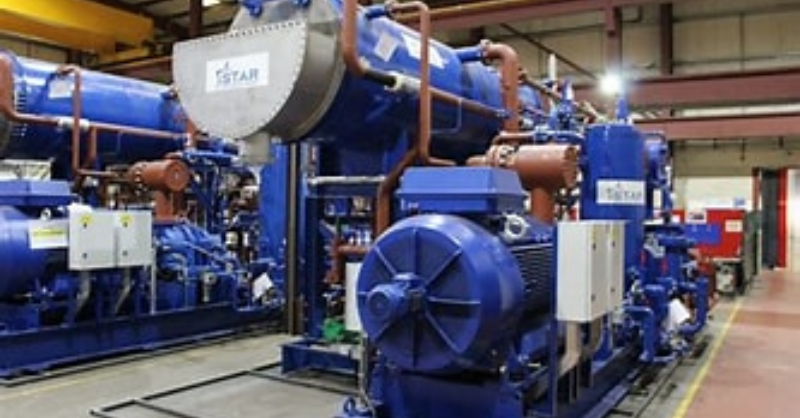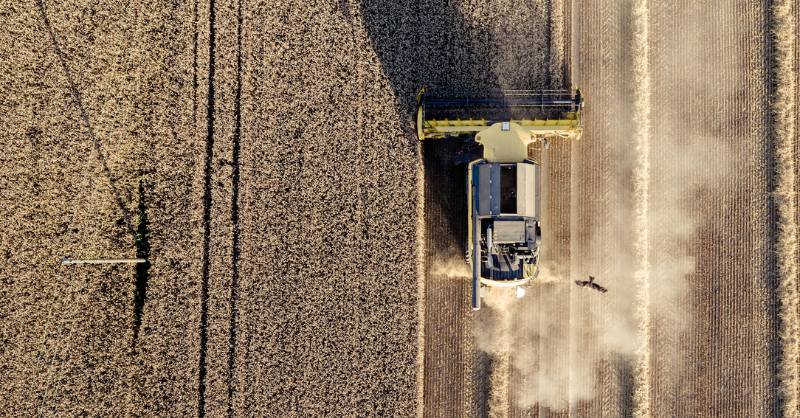
Bridging the gap 35.23
In case you missed it ...
Not a subscriber yet? Click here
('Bridging the gap' is free)
Here is a selection of recently published Deep Dives, Perspectives and Quick Insights that our subscribers get to read in full.
- Industrial heat pumps can work (Greener Energy Applications)
- Should companies be worried about farmers' right to repair? (Agriculture / Natural Capital)
Plus a few from the archives:
- Taking TV for a 500 mile drive (Greener Energy Applications)
- Decarbonising chemicals - ShareAction report (Greener Energy Applications)
- Maggots as an alternative antibiotic? (Built Environment / Wellness)
What subscribers are reading this week
Industrial heat pumps can work
(Greener Energy Applications, Premium and Professional)
Industrial heat pumps (IHPs) not only offer the opportunity to decarbonise many industries, but they could also become a multi-billion dollar investment opportunity. At present, heat pumps are really only commercially available for temperatures up to 200o C. Even at this level they can still decarbonise up to nearly 40% of global industrial heat energy use.
So, how do we make this impactful investment opportunity happen? There are two main barriers to overcome. The first is the cost premium of electricity compared with gas. This is solvable, with the required political will - after all we are already heavily subsiding the production of green hydrogen. The second is the chicken and egg education process. There are few suppliers, so most plant process operators have limited knowledge of what IHPs can deliver. And because most process companies don't ask for heat pumps, there are only a few suppliers .... and round we go again.
With the right support, Europe and Japan could gain massive competitive advantage, and it could be a multi-billion dollar industry, while at the same time making a material contribution to our decarbonisation efforts.
Link to blog 👇🏾

Should companies be worried about farmers' right to repair?
(Agriculture / Natural Capital, Professional)
The 'right to repair' debate has been rumbling on for some time now, especially in the US. And despite the efforts of many, progress has been slow. Earlier in the year we looked at this topic from the perspective of the farmers. Now we look at the possible impact on the Agtech companies, those who produce and service the increasingly sophisticated agricultural equipment.
The bottom line, at least as far as we see it, is that progress on 'right to repair' is going to remain slow. This is not due to a lack of will on the part of farmers, it's due to politics. And this probably means that, at least in the all important US market, we should expect little change. With demand continuing to grow for AgTech, we can see no material impact of the 'right to repair' movement on the business models of the Agtech companies. To be clear, this is not a value or ethics based judgement, it's just a reflection of what we see.
Link to blog 👇🏾

From the archives
Taking TV for a 500 mile drive
(Greener Energy Applications, Premium and Professional)
In Mike Berners-Lee’s book, "How Bad are Bananas?: The Carbon Footprint of Everything", there is a statement that watching TV for a year has a similar carbon footprint to driving a car for 500 miles. This works out at a daily working return commute of only 2 miles per day - suggesting the impact of watching TV for a year is small. However, taken globally, the number of individuals doing that same activity is large and that soon adds up to something meaningful. We discussed this in a Quick Insight back in April.
Why this is important: Sometimes our human activities are big and obvious - industrial processes need heat and pressure, from burning of fossil fuels, and emit greenhouse gases as byproducts. Sometimes they're small and not so obvious - streaming content from the cloud. Understanding the impact of activities can influence design, policy and marginal consumption choices.
Link to blog 👇🏾

Decarbonising chemicals - ShareAction report
(Greener Energy Applications, Professional)
Back in March 2023, we wrote a report for Share Action on the financial case for decarbonising the Chemicals sector. We all know this is a challenge we need to fix, that it's going to take many years, and that it's going to need a lot of government support. The good news is that Europe already provides this for renewables, and in green steel we have a pathway to how this could work for the chemicals sector.
Sorting out the 'hard to decarbonise sectors' is going to be a big challenge. They are big contributors to GHG emissions etc but they are also linked to fossil fuels for good economic reasons. This is going to take us many years to resolve, which is why it's best to start now, rather than "kick the can" down the road.
If you add the GHG emissions from the impacted sectors together, you get to roughly 1/3 of all global emissions. So working out how to fix this is one of the big challenges. They are not called hard to decarbonise for nothing! There are good reasons why many of them currently use fossil fuels, so decarbonisation is going to need a lot of government assistance.
Link to blog 👇🏾

Maggots as an alternative antibiotic?
(Built Environment / Wellness, Premium and Professional)
Used since antiquity for wound treatment, maggots are making a comeback. Whilst available on the NHS, there remains a reluctance to use maggot therapy (MT) despite plenty of research supporting its efficacy and cost effectiveness. The "yuck factor" needs to be overcome.
The use of MT can reduce the need for antibiotics as their own action helps to remove and prevent bacteria causing disease. We wrote about this back in November 2022.
The big theme: Antimicrobial Resistance (AMR) is a macro threat to the sustainability of the human race and other species. It is of a similar level to that of the worst impacts of climate change. It is important for investors as a source of risk to be understood but also offers potential areas for innovation and investment not just pharmacological with new antibiotic drugs, but also other ways of disrupting the pathogenic (disease causing) nature of microbes. These can be physical, behavioural and can be even be inspired by simple and ancient techniques. Another investment theme that this story highlights is the myriad of uses for insects in both healthcare and in agrifood systems.
Link to blog 👇🏾

Please forward
to a friend, colleague or client
If this was forwarded to you, click the button below and sign up for free to get 'Bridging the gap', 'What caught our eye' and the 'Sunday Brunch' in your inbox every week.

Please read: important legal stuff.
